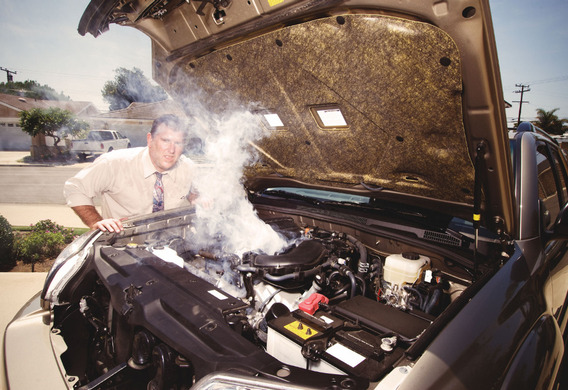
The causes of the overheating (boil) of the engine may be large. Extended heat may cause serious damage to the engine, so the first signs of overheating should stop and shut off the engine.
The most common causes of engine overheating and cooling of the coolant:
1. Billed and dust radiator. This is particularly the case for cars equipped with air conditioning, as the engine cooling radiator and the condenser are one by one, and the space between them is filling with dust and fluff.
2. Cooling efficiency and cooling have been lost in the radiator. The reason is the sediment, which remains of the poor coolant. The cooling system will have to be washed.
3. Not included or delayed by cooling fans. The cause is most likely in the fan sensor. It has either been out of order or has grown dirty: the sensor is generally at the bottom of the radiator, where dirt increases over time. We need to get the sensor out and assess the contamination. Also, fans may not be activated due to problems with wiring, for example, wiring lots around connectors.
4. Non-practical thermostat. If the thermostat is caught on a small cooling cycle, the engine will heat up quickly in the warm weather.
5. Problems with the radiator cap or the expansion cap of the cooling system: cap or cap not pressuring.
6. Misfire of a properly regulated ignition system.
7. Air (cap) air in the engine cooling system.
8. Coolant leak.
To avoid overheating problems, it is recommended that the coolant be changed approximately every two years, once a year is the expansion cover and twice a year to clean the radiators outside.







